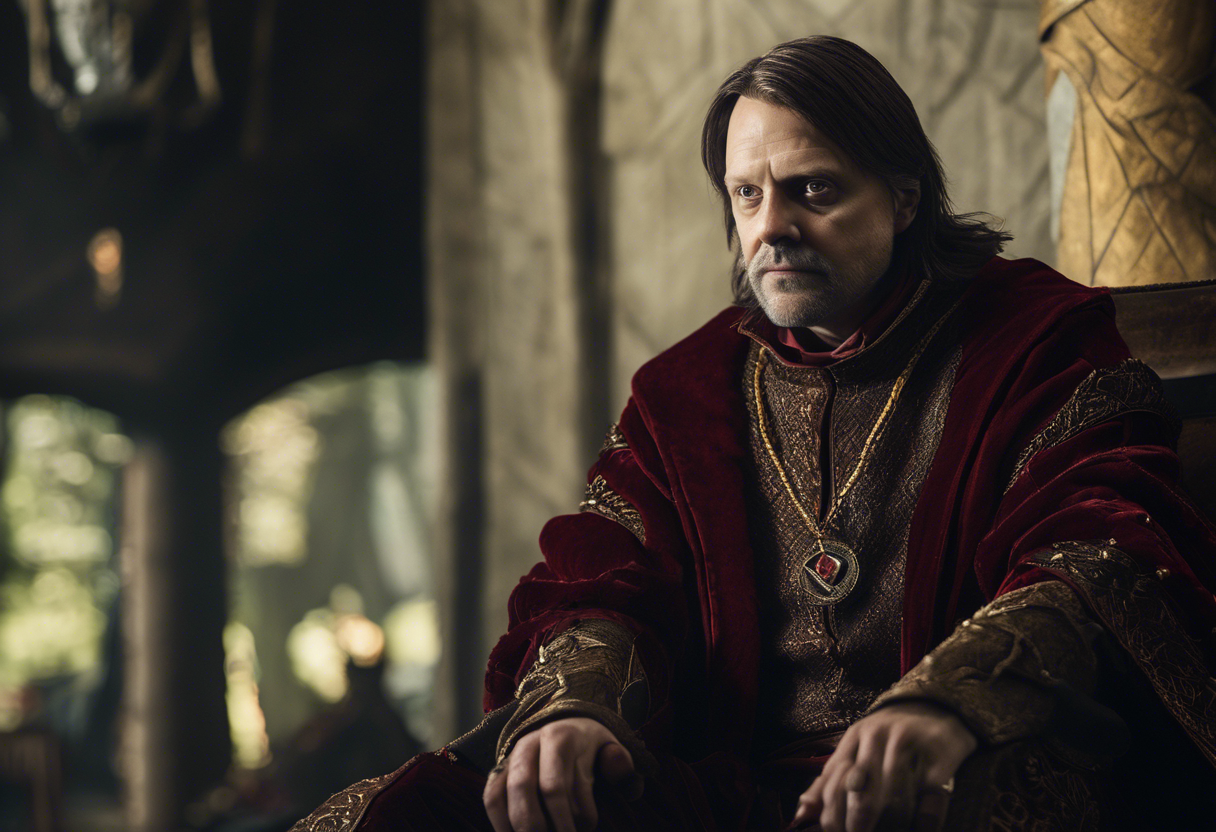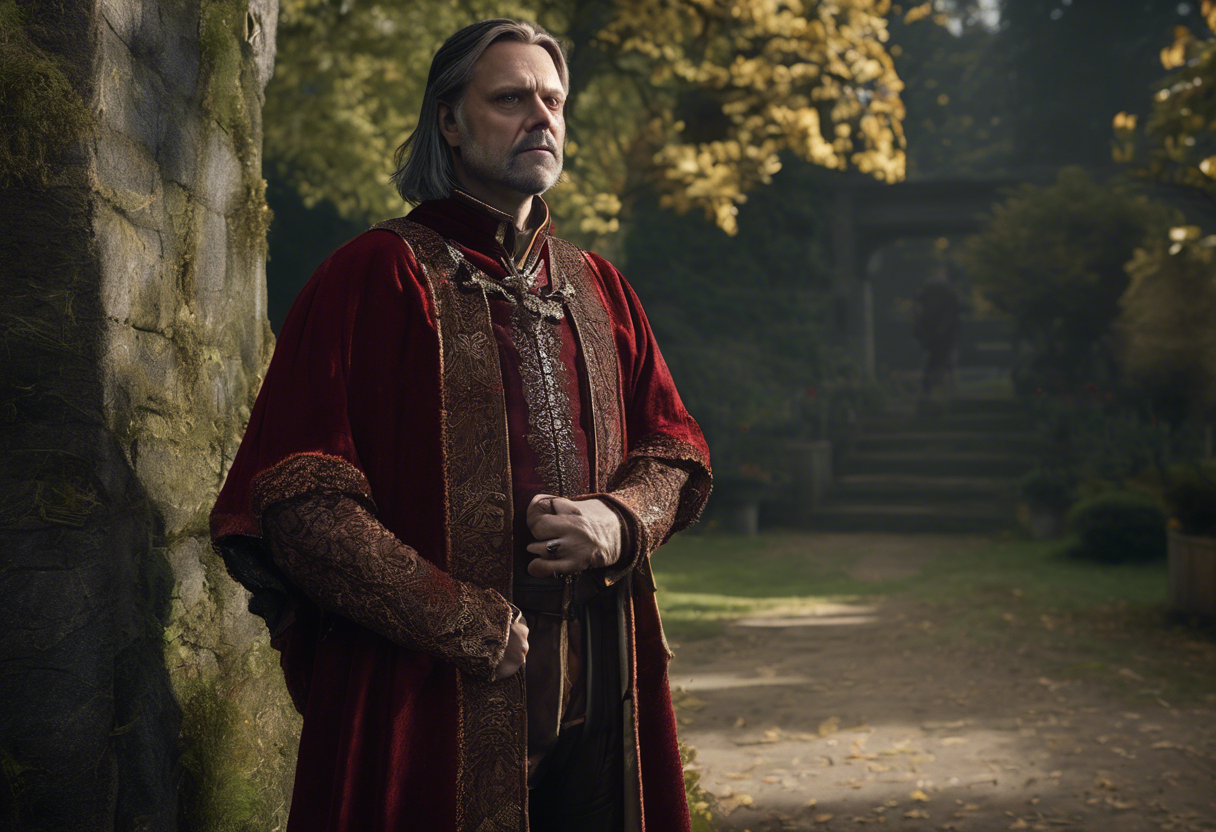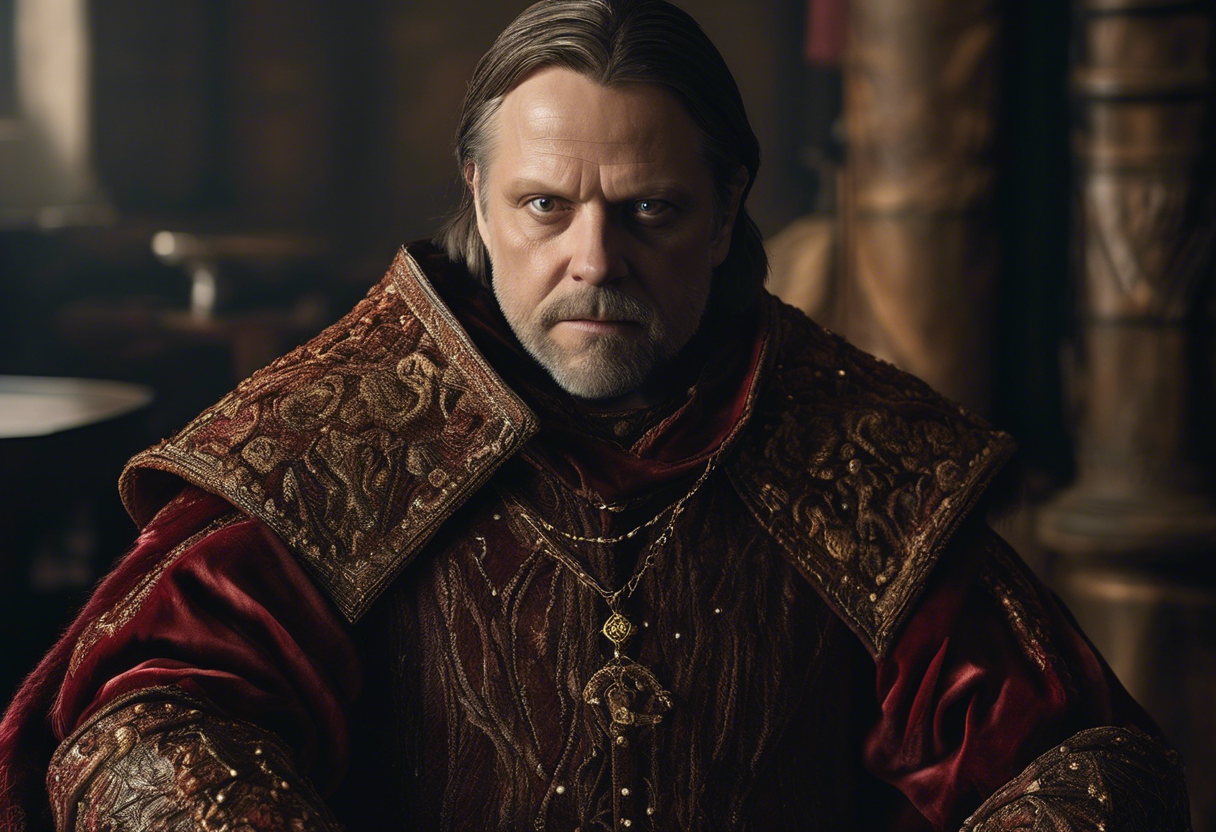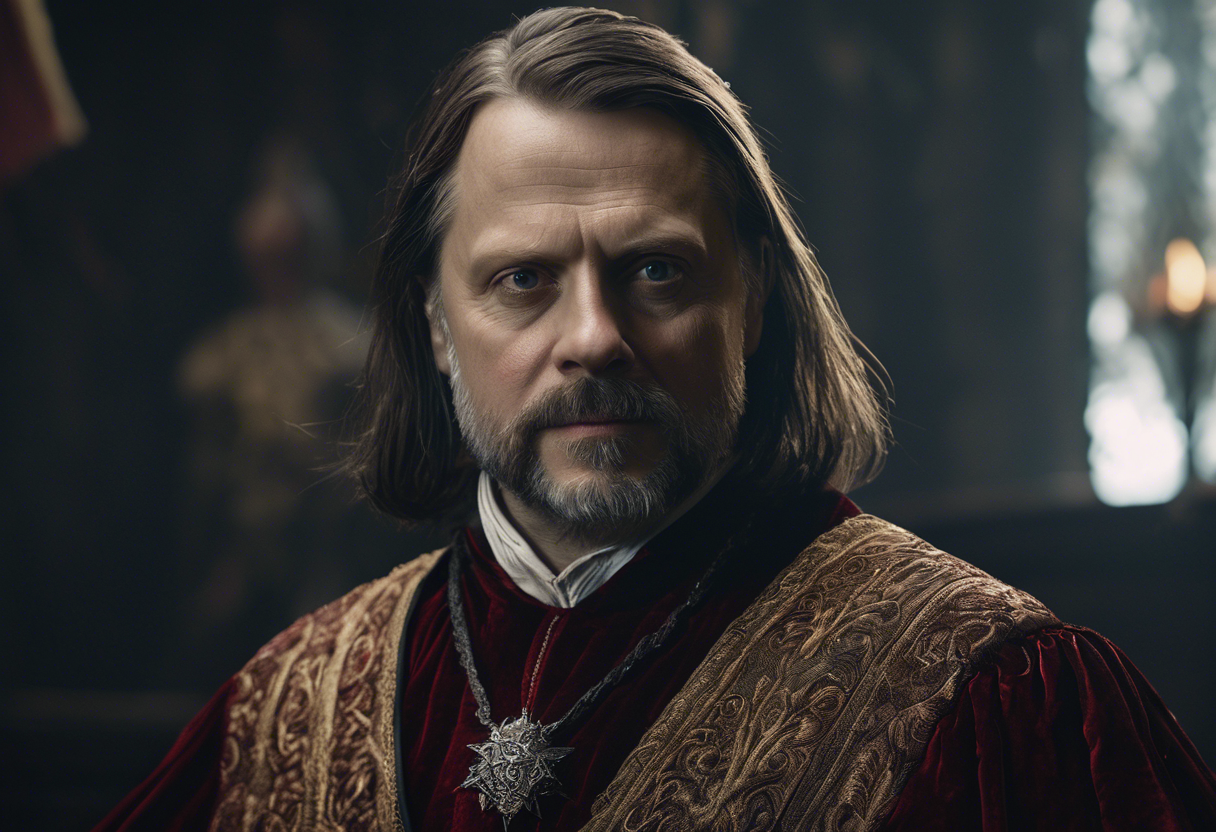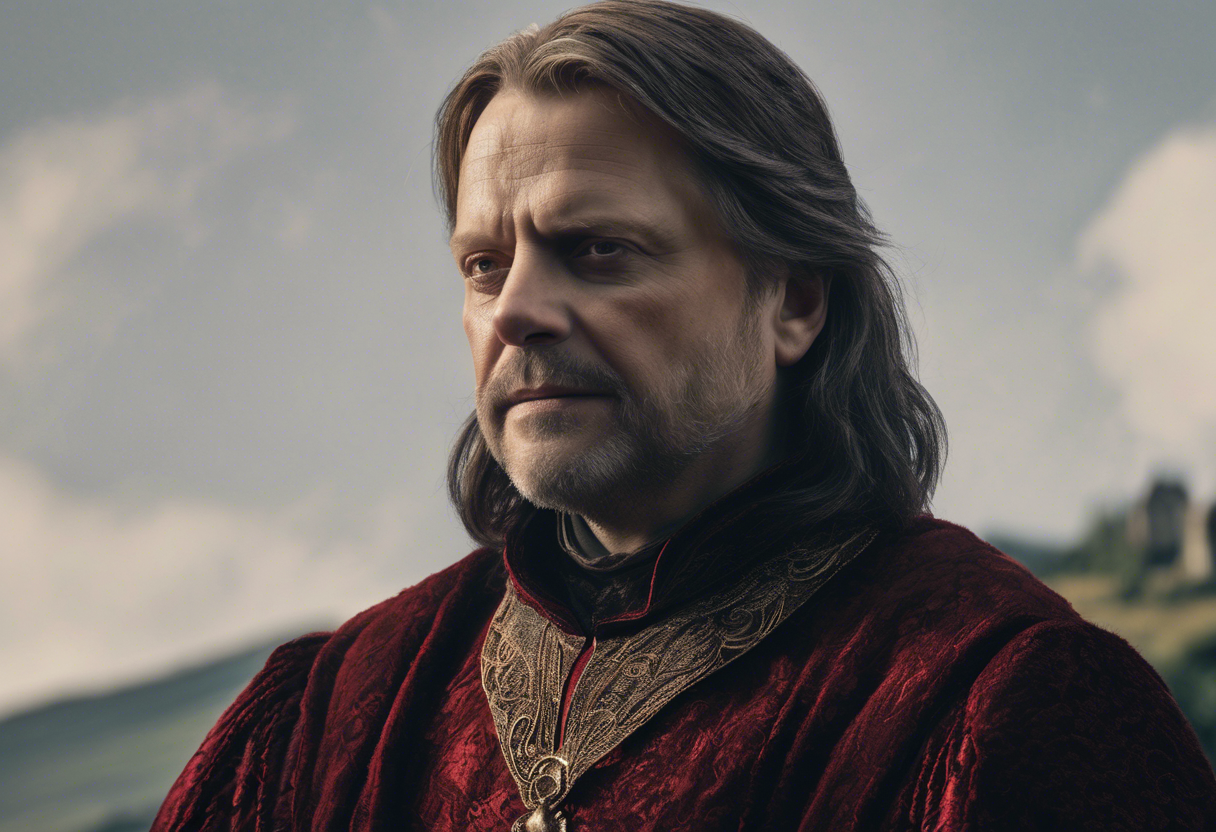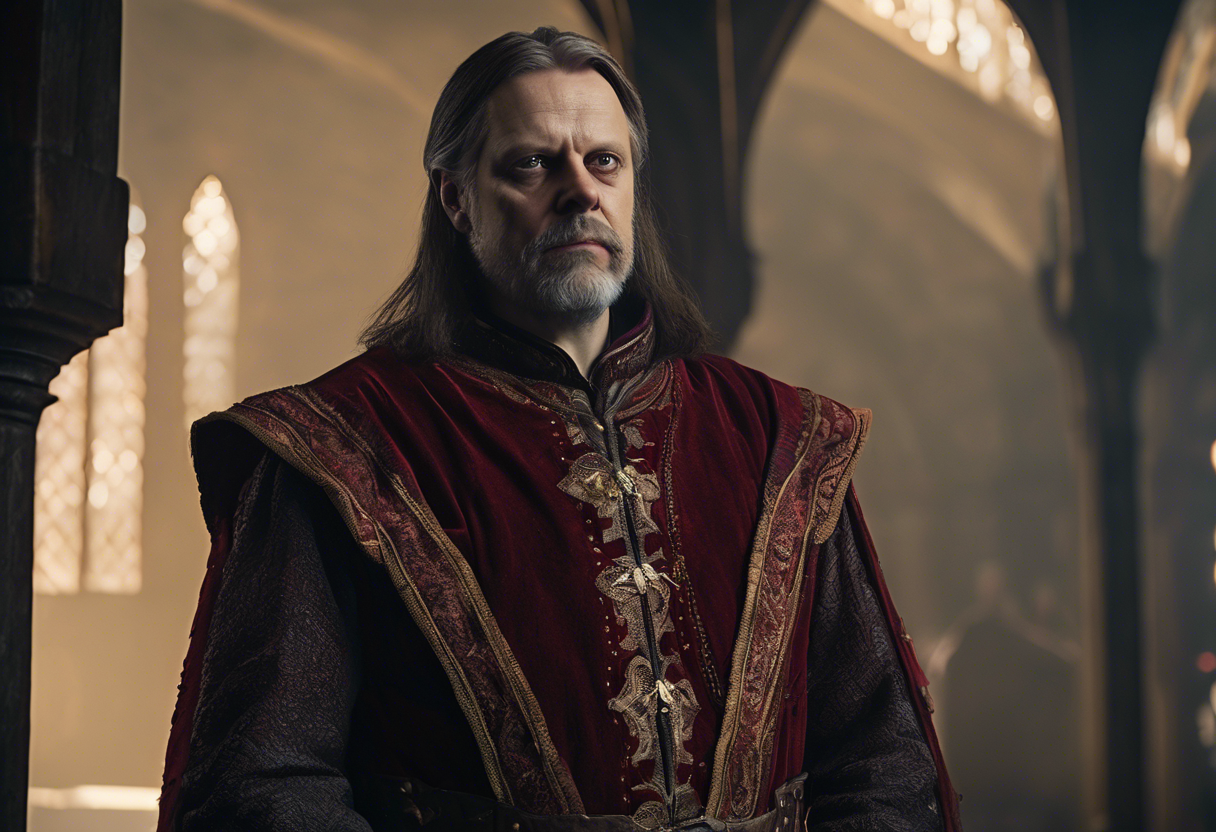Contents
King Foltest in The Witcher Netflix Series
Introduction
King Foltest of Temeria is a significant character in the Netflix series adaptation of The Witcher, based on the popular book series by Andrzej Sapkowski. Portrayed by actor Shaun Dooley, King Foltest is a complex figure with a rich backstory that intertwines with the broader narrative of the series. His character is marked by a tumultuous personal life, political intrigue, and a deep emotional struggle, making him a compelling and relatable figure.
King Foltest’s origins are rooted in the fantasy world of The Witcher, where he rules over the kingdom of Temeria. His backstory is marred by an incestuous relationship with his sister, which resulted in the birth of a daughter. However, this daughter died in childbirth, only to be resurrected as a striga, a monstrous creature driven by bloodlust, due to the dark magic prevalent in the world [4][5].
Role in the Series
King Foltest’s storyline in the Netflix series is intricately linked with the main characters, particularly Geralt of Rivia. The king’s primary conflict revolves around his daughter, who was transformed into a striga. Despite the danger she poses, Foltest is deeply attached to her and seeks a way to restore her to her human form. He hires Geralt, a renowned witcher, to lift the curse, demonstrating his desperation and paternal love [4][5].
Foltest’s journey is also marked by his interactions with other key characters. He works closely with Triss Merigold, a sorceress who advises him on matters involving Geralt and the striga. This relationship highlights Foltest’s trust in those who can help him navigate the supernatural challenges he faces. Additionally, his character is involved in the broader political landscape of the Continent, often finding himself at the center of power struggles and alliances that shape the destiny of Temeria and other kingdoms [1][5].
Character Analysis
King Foltest is a multifaceted character with a complex personality. His motivations are driven by a mix of paternal love, guilt, and a desire to protect his family and kingdom. Despite his royal status, Foltest is portrayed as a vulnerable figure, haunted by the consequences of his past actions. This vulnerability makes him relatable and human, as he grapples with the moral and emotional implications of his decisions.
One of Foltest’s significant strengths is his unwavering commitment to his family. He goes to great lengths to ensure the well-being of his daughter, even when it means risking the safety of his kingdom. However, this commitment also exposes his flaws, such as his inability to let go of the past and his tendency to prioritize personal interests over the greater good.
Throughout the series, Foltest undergoes significant character development. He evolves from a figure consumed by his personal tragedy to one who begins to see the larger picture and the consequences of his actions. This development is particularly evident in his interactions with Geralt and Triss, where he learns to trust and rely on others to solve his problems [4][5].
Themes and Symbolism
King Foltest embodies several themes that are central to The Witcher series. One of the most prominent themes is the struggle between personal desire and public duty. Foltest’s love for his daughter and his desire to save her often conflict with his responsibilities as a king, highlighting the difficult choices leaders must make.
Another theme associated with Foltest is the power of redemption and forgiveness. His journey is a metaphor for the human quest for redemption, as he seeks to make amends for past mistakes and find a way to restore his daughter to her human form. This theme is symbolic of the broader human experience, where individuals seek forgiveness and a second chance.
Foltest also represents the theme of family and the bonds that tie people together. His relationship with his daughter, despite its complexities, underscores the deep emotional connections that define human relationships. This theme is particularly significant in a world where family ties are often tested by supernatural forces and political intrigue [1][4].
Cultural Impact
King Foltest has a notable cultural impact within the Witcher fandom. His character has been well-received by fans for its complexity and emotional depth. The portrayal by Shaun Dooley has been praised for bringing a nuanced and empathetic interpretation to the role.
In terms of adaptations, King Foltest has appeared in various forms of media within the Witcher franchise. In the video game series, he was voiced by Antony Byrne in The Witcher 2: Assassins of Kings, adding another layer to his character’s presence in the franchise’s lore [3].
Foltest’s influence on popular culture is evident in how he represents the archetype of the flawed but redeemable leader. His character serves as a reminder that even those in positions of power are not immune to personal struggles and that redemption is always possible.
Critical Reception
King Foltest has received positive critical reception for his role in the Netflix series. Critics have praised the character’s depth and the emotional resonance of his storyline. The portrayal by Shaun Dooley has been highlighted as a strong point, bringing a level of authenticity and vulnerability to the character.
However, some critics have noted that the character’s development could be further explored, particularly in terms of his political role and the broader implications of his actions on the Continent. Despite this, Foltest remains a compelling and well-received character within the series.
Audiences have also responded well to King Foltest, appreciating the complexity and humanity brought to the role. His story arc has been a highlight for many viewers, who find his struggles and ultimate redemption deeply engaging and relatable [1][5].
Legacy
King Foltest’s legacy in The Witcher series is one of enduring appeal and relevance. His character continues to inspire discussions about the nature of leadership, family, and redemption. As a figure who embodies both the flaws and the strengths of human nature, Foltest remains a compelling and memorable character.
His influence can be seen in other works within the fantasy genre, where complex, flawed characters are becoming increasingly popular. Foltest’s story serves as a reminder that even in a world filled with magic and monsters, the most compelling stories are often those of human struggle and redemption.
In conclusion, King Foltest is a pivotal character in the Netflix adaptation of The Witcher, offering a rich tapestry of emotional depth, complex motivations, and thematic resonance. His legacy continues to resonate with audiences, making him an integral part of the Witcher lore.
References
- https://en.wikipedia.org/wiki/The_Witcher_(TV_series)
- https://www.imdb.com/title/tt5180504/characters/nm0233215
- https://redanianintelligence.com/2022/07/06/the-witcher-actors-who-appeared-in-netflix-series-and-in-the-games/
- https://en.wikipedia.org/wiki/List_of_characters_in_The_Witcher_series
- https://screenrant.com/witcher-show-netflix-cast-character-guide/

